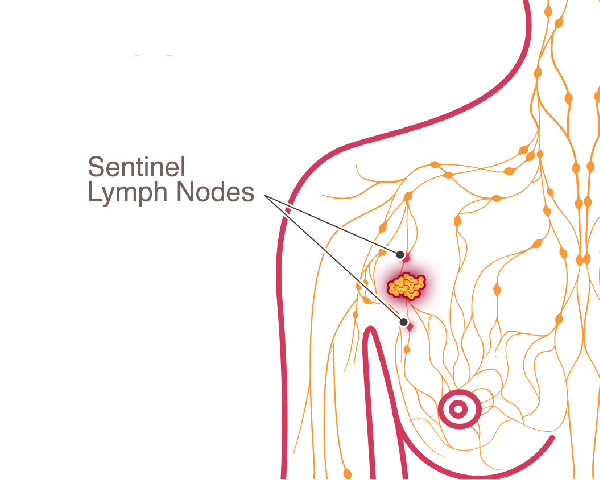
Lymph Node Excision / Biopsy
Lymph Node Excision / Biopsy is a surgical procedure which checks for disease within the lymph nodes. Lymph nodes are very small oval-shaped organs located in different parts of the body. Typically found close to internal organs like lung, intestines, stomach & breast in areas like neck, groin & armpits. Lymph nodes are basically part of our immune system which helps us fight off infections. Lymph nodes can swell & appear as a lump beneath skin in response to an infection. Doctors may order a lymph node biopsy if these nodes remain swollen or grow even larger.
Types of Lymph Node Biopsy
Lymph node biopsy at Vitality Health Services is a day care procedure. The doctor will either remove the entire lymph node or just a tissue sample from the swollen lymph node. Subsequently it will be sent to the lab for analysis. Here are the three ways lymph node biopsy can be performed.- Needle Biopsy –
This is meant to remove a small sample of cells from the lymph node. The procedure takes about 10 – 15 minutes of time. For this purpose the doctor will clean the biopsy site & apply medication to numb the area while the patient lay on the examination table. Subsequently the doctor will insert a needle in the lymph node for extracting a sample of cells. After removing the needle a bandage will be placed on the site.
-
Open Biopsy –
Open biopsy is conducted to remove a portion or the entire lymph node. This procedure takes 30 – 45 minutes of time. The doctor will make a small incision for this procedure & remove the lymph node or portion of the lymph node. Subsequently, the doctor will stitch close the biopsy site & apply a bandage. This operation is performed under local or general anesthesia. Pain following open biopsy is generally mild & it takes about 10 to 14 days for the incision to heal. Exercise & strenuous activity should be avoided during this time.
-
Sentinel Biopsy –
This biopsy is conducted on cancer patients in order to determine whether the malignancy is likely to spread. The doctor will inject a blue dye into the body near the cancer site during this procedure. This dye which is also known as the tracer travels to the sentinel nodes which are the first few lymph nodes into which the tumor drains. The surgeon will then remove this lymph node & send it to the lab for examination. Treatment recommendations will be based upon the lab results.
Preparing for Lymph Node Biopsy
Talk about the medications you are taking to the doctor prior to scheduling your lymph node biopsy. Non-prescription medications like aspirin, other blood thinners & supplements should also be included. You should also let the doctor know if you are pregnant & about latex allergies, medication allergies & about bleeding disorders if you have any. You will also have to stop taking prescription & non-prescription blood thinner medications at least 5 days before the scheduled lymph node biopsy. Stopping eating or drinking several hours prior to the scheduled biopsy is also necessary. Other specific instructions on how to prepare for lymph node biopsy will be instructed by the operating surgeon.
Recovery Following Lymph Node Biopsy
Tenderness & pain can last for a few days following lymph node biopsy. You should keep the biopsy incision site clean & dry at all times after returning home. You may also be instructed by the doctor to avoid shower or bath for a couple of days following biopsy operation. You should pay close attention to biopsy site incision & general physical condition following the procedure. Make it a point to call the doctor immediately if you show any signs of infection or complications.
Results of Lymph Node Biopsy
Test results following lymph node biopsy will be ready within 5 – 7 days. Vitality Health Services will call you with the results & a follow-up visit may be scheduled. Doctors are likely to look for signs of infection, immune disorders or cancer with a lymph node biopsy. Biopsy results will indicate if you are having any of these conditions. Conditions which a lymph node biopsy can detect include the following.
- Leukemia
- Oral Cancer
- Lung Cancer
- Breast Cancer
- Hodgkin’s Lymphoma
- Non-Hodgkin’s Lymphoma
Lymph Node Biopsy is relatively a minor procedure. However, this will help the doctor determine the cause of your swollen lymph node. It would be sensible to talk to the doctor about your lymph node biopsy & the results of the procedure.
